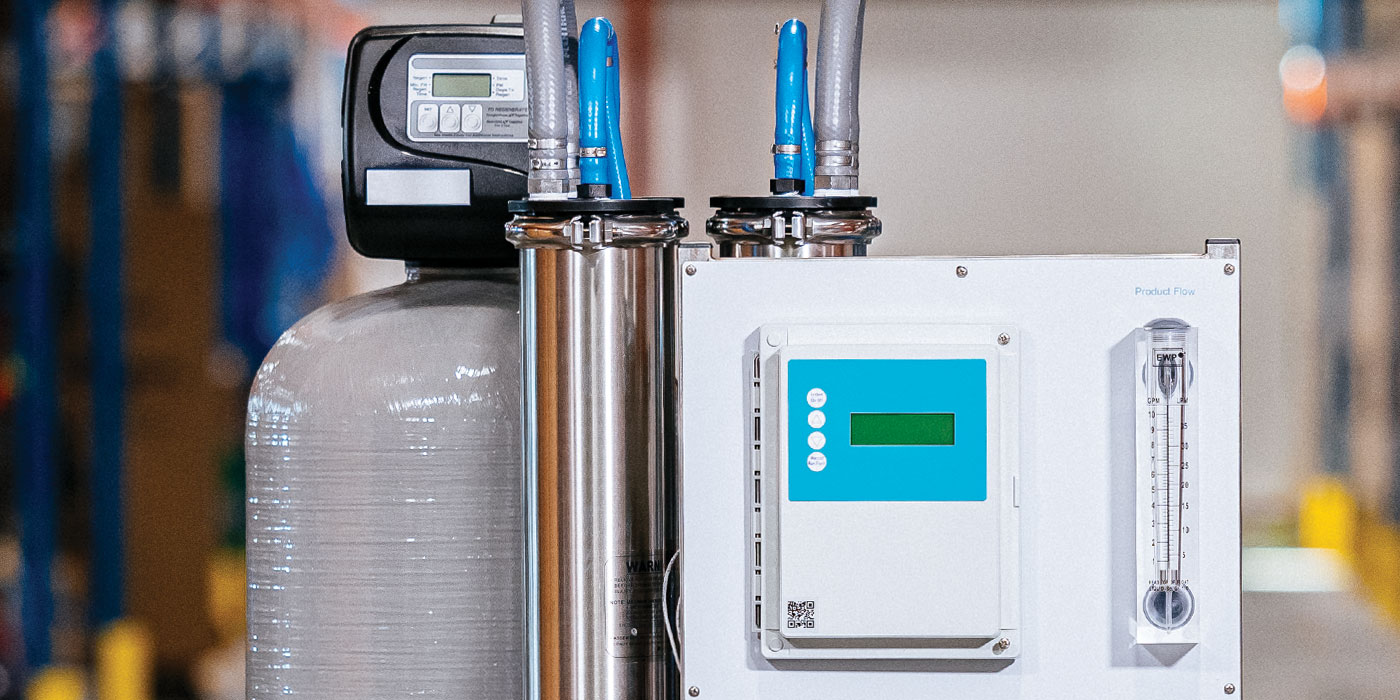As a manager, you probably ponder about different strategies to improve productivity, results, morale and the always critical bottom line. While training employees with innovative equipment and implementing market knowledge are important, protecting their safety should be among your top priorities in order to elevate your staff’s performance. Particularly, hand care is an often overlooked area of employee safety.
Our industry’s technologies have progressed quite significantly in the past 50 years. Earlier work was more manually-demanding, putting stress and strain on employees. Today, plenty of automation is involved in the tasks performed. Additionally, ergonomic features have evolved to become the standard of equipment and bottles, rather than a more expensive choice.
In a perfect world, our industry’s front-line workers wouldn’t be at risk for musculoskeletal disorders (MSDs) and other serious hand-related injuries, cross-contamination wouldn’t be a concern, and illness and disease would be taboo. Have you come back down to Earth yet?
Ergonomics focused on hands
In short, MSDs are the result of workers using repetitive motions over a prolonged period of time. The health issues reported by employees range from minor discomfort, aches and pains to more serious medical conditions requiring time off from work and medical treatment. In more serious cases, treatment and recovery were not effective, resulting in permanent disability, loss of employment opportunities and overall setbacks in their quality of life.
Carwash workers may be at risk for hand-related problems and injuries. Among the main factors are:
- Manual handling: lifting, pulling, pushing, carrying and holding. Tasks that require these actions can include moving and transporting heavy equipment; everyday machines, such as vacuums; and loads, such as laundry.
- Awkward hand positions: contorting hand posture to abnormal positions to clean hard-to-reach areas or slanted surfaces, such as windows. This would also include risks associated with using older or cheap spray bottles or equipment handles.
- Pressure: pressing down or applying extra pressure to remove dirt or soil. Consider more powerful cleaning products or equipment if workers are using too much elbow grease to get the job done.
- Vibrating equipment: losing control and constant shaking. Machines that vibrate too much can cause hand fatigue, increasing the chances of workers losing control of the equipment.
Additionally, safety guards and features for larger equipment should also be standard. With handles and grips, make sure the equipment conforms to your workers’ hands and not the other way around. Employees’ hands must maintain strong, healthy tendons and muscles, and managers must listen for and rectify any complaints in a timely fashion. It will make the difference in customer satisfaction when manual labor is called for.
Other hand care tips
Employees who handle chemicals are at risk for skin irritation and burns. Our skin, which is the body’s largest organ, is the No. 1 most important element in our defensive immune system. Every day, your skin eliminates germs, bacteria and illness from entering the body.
Making sure your employees protect the skin on their hands is important to their overall hand health. Included in general hand health is hand-washing. Proper hand-washing, according to the Centers for Disease Control and Prevention (CDC), involves using water, soap and washing for at least 20 seconds.
Drying hands thoroughly is just as important as washing them in the first place. Wet hands can attract and retain more germs and bacteria than dry hands. Educate employees on these facts of hand-washing and drying, and ensure they are following protocol.
Recently, with the emergence of hand sanitizers, CDC has also addressed its proper use. According to cdc.gov, “Washing hands with soap and water is the best way to reduce the number of germs. … If soap and water are not available, use an alcohol-based hand sanitizer that contains at least 60 percent alcohol. Alcohol-based hand sanitizers can quickly reduce the number of germs on hands in some situations, but sanitizers do not eliminate all types of germs.” The website adds that hand sanitizers are not effective when hands are visibly dirty.
As mentioned, employees handling chemicals may experience skin irritation and burns. Make sure employees inform you immediately if the chemicals they are using result in skin irritation. Some employees are more sensitive than others. Investigate the situation; and, if needed, switch products or the employee’s task if possible.
Carwash employees also use water to complete their duties. Water, prolonged exposure to cold outdoor air and excessive hand-washing can cause dry skin. When skin is dry, its function and purpose are impaired. Cracks and cuts can be perfect entrances for germs and bacteria into the body. Employees should use moisturizing skin care hand lotion as needed to prevent the development of dry skin. Furthermore, you should make lotion available for workers to use at work.
Supplying gloves is another step managers can take to protect employees’ hands. Be mindful of skin irritation and allergy issues associated with using disposable gloves and choose a higher grade, hypoallergenic brand.
Most of all, managers must use common sense when promoting employee hand health. Evaluate workers’ tasks and look for improvements with safety and health in mind. Moving forward, we anticipate the need for manual labor to be reduced even further and replaced with automation. However, employees’ hands will continue to be at risk for the various reasons outlined in this article. Protecting your bottom line starts with protecting workers’ hands.














